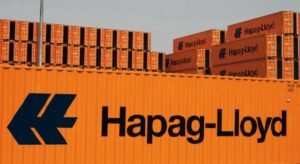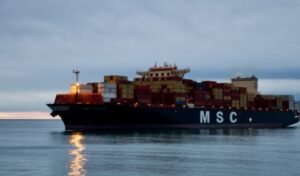Global shipping companies, including AP Møller-Mærsk, the operator of the world’s second-largest container shipping fleet, have temporarily suspended their journeys through the Red Sea. This decision comes in response to the increasing threat of attacks by Yemeni rebels, which could potentially disrupt crucial trade routes through the Suez Canal.

The Bab-el-Mandeb strait, a key waterway linking the Red Sea and the Gulf of Aden, has been the site of over 10 attacks on ships by the Houthi rebels from Yemen, who are backed by Iran. These attacks have escalated since the start of the conflict between Israel and Hamas. In response to this situation, Mærsk, a global shipping company, has expressed serious concerns about the heightened security risks in the southern Red Sea and Gulf of Aden, emphasizing that these attacks pose a significant threat to the crews of commercial vessels.
World’s largest firms on the warning and attacks
Trafigura

Trafigura, one of the world’s largest commodities traders, also announced that it is taking extra precautions for its owned and chartered vessels due to these threats.
These attacks are a risk to the global supply chains that depend on the Red Sea and the Suez Canal, a crucial waterway that handles 30% of all container ship traffic and is a primary route for crude oil shipments.
Hapag-Lloyd

Hapag-Lloyd, the world’s fifth-largest container shipping group based in Germany, has also decided to suspend all container ship traffic through the Red Sea until Monday. This decision was made after one of its container ships, the Al Jasrah, was attacked while sailing near the Yemen coast on Friday.
Mærsk

Mærsk recently reported a “near miss” attack by the Houthi rebels on its ship, the Mærsk Gibraltar. This incident has raised alarm among other shipping companies and stakeholders.
In response to the escalating security situation, Maersk Tankers, a separate group that operates one of the world’s largest product tanker fleets, issued a memo to its customers. The memo stated that its tankers traveling between Asia and Europe would now consider rerouting their course via the Cape of Good Hope to avoid the dangerous area in the Red Sea.
Henning Gloystein, a director at the Eurasia Group consultancy, pointed out that such security threats could add thousands of miles to trade routes between Europe and the Indo-Pacific region, significantly affecting global commerce.
US report and action on the attack
This month, shipowners have called for increased protection for maritime routes in the region, especially after a US warship also came under attack off the Yemeni coast. In response to these events, the US is expected to announce the formation of a task force in the coming days to ensure the safe passage of ships in the Red Sea.
John Kirby, a US national security spokesperson, stated on Friday that Washington is in discussions with a variety of partners to ensure the free flow of commerce through this vital checkpoint and body of water.
The U.S. Central Command reported that the guided-missile destroyer Carney managed to intercept and destroy 14 drones launched by the Houthis in the Red Sea on Saturday morning. These drones were identified as one-way attack drones and were successfully neutralized without causing any damage to ships.
Similarly, Britain reported that one of its warships had also shot down a drone suspected of targeting merchant shipping.
Houthi rebels and the sea route

The Houthi rebels, who have controlled large parts of Yemen since 2014, have threatened to target any vessels heading to Israeli ports, according to S&P Global Commodity Insights. This adds another layer of complexity to the already tense situation in the region.
In recent times, the Houthi group, which governs a large part of Yemen, has intensified its attacks on shipping vessels. They have also launched drones and missiles towards Israel, hitting the Red Sea resort city of Eilat last Saturday. This is seen as a show of support for the Hamas group, backed by Iran, which is currently in conflict with Israel in Gaza.
Despite their aggressive actions, the Houthis have stated that they will continue their attacks until Israel ceases its offensive. They clarified last Friday that their targets are only ships en route to Israel.
In a hopeful turn of events, a spokesperson for the Houthi group recently revealed that they have been participating in discussions facilitated by Oman with “international parties” about their activities in the Red Sea and Arabian Sea. This could hint at a possible inclination by the Houthis to reduce tensions.
Suez Canal the new route
Crude oil and fuel affected by the attack by Yemeni rebels

The Bab al-Mandab strait, which connects the Red Sea and the Gulf of Aden, plays a critical role in global seaborne commodity shipments. It’s particularly important for the transit of crude oil and fuel from the Gulf heading westward for the Mediterranean via the Suez Canal or the nearby SUMED pipeline, as well as commodities heading eastward for Asia, including Russian oil.
The ongoing conflict in the Red Sea has led to a spike in war risk premiums, adding substantial additional costs, in the tens of thousands of dollars, for a seven-day voyage.
In response to these developments, MSC has decided to alter some of its services to navigate around the Cape of Good Hope on Africa’s southern tip. This decision will extend the sailing times of vessels that were originally scheduled to pass through the Suez Canal by several days. This is a clear indication of the serious impact the conflict is having on global shipping routes.












Comments 1